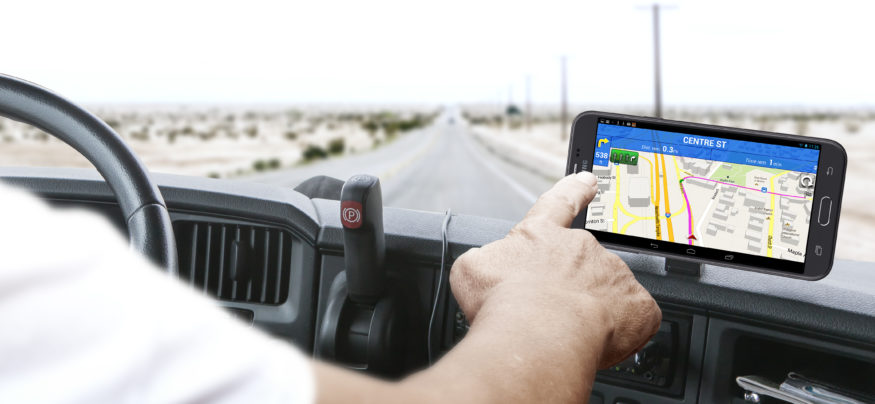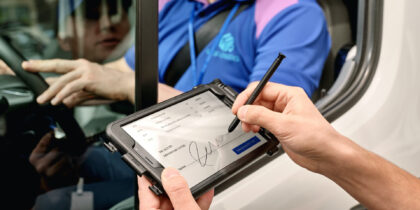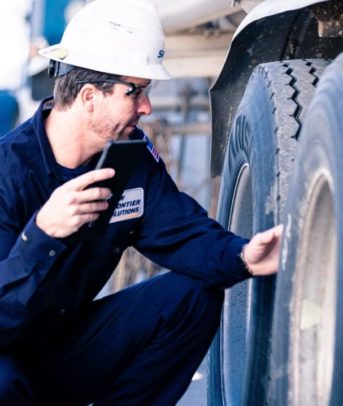With the deadline for the FMCSA ELD mandate getting closer, it’s vital to make sure the transition to an electronic logging device (ELD) for your fleet is as smooth as possible.
With the mandate affecting approximately 3 million truck drivers, nearly everyone who drives a long-haul truck will deal with the FMCSA ELD mandate. Here’s a look at the top five ELD mistakes that could impact fleet operations:
1. Waiting Until the Deadline
Barring any surprises, the FMCSA mandate takes effect in December 2017. But fleet managers and owners/operators should start the transition as soon as possible.
Waiting until the last minute could lead to problems due to shortages of hardware, installation and training. There’s likely to be a rush to meet the deadline, and you don’t want to have trucks idled waiting for installation, whether it’s for hardware or licensing software. Training will also be an important step, as drivers and fleet managers must understand how to use the tools so they won’t be sidelined or risk not being in compliance while on the road.
2. Dealing With Unregistered and Uncertified ELD Providers
ELD providers must certify that their devices meet all the technical specs under the FMCSA ELD mandate. Then the manufacturers register their device with the FMCSA. The FMCSA doesn’t test each device; it accepts the manufacturers’ own certifications. Many major manufacturers are still conducting tests and working with the FMCSA to finalize some standards.
Before you buy, check the FMCSA site for a list of registered devices. After the deadline, the FMCSA could de-certify ELDs that do not meet the requirements, so experts strongly advise fleets to ensure that their ELD provider’s contract has provisions about what the recourse will be in case a device must be upgraded or exchanged.
3. Lack of Proper Technology Training
Transitioning to new technology and new processes always requires training. Even if the ELD devices are familiar smartphones and tablets, drivers and managers will have to understand how to properly operate the Record of Duty Status and access fleet management tools. A lack of training could lead to a driver’s time being recorded incorrectly, leading to enforcement actions such as fines and suspensions.
To avoid this potential hurdle, companies can consider having experienced, tech-savvy drivers test the ELD solution to help develop training and assist with fleet-wide rollout.
4. Forgetting About Technical Support
Adopting the FMCSA ELD mandate doesn’t end when the devices are installed in the trucks. There will be a need for ongoing tech support for hardware and software. If an ELD fails, drivers are allowed to use an alternative method for only eight days, so it’s important to keep the system running on a regular basis.
The Future of Fleet Management
Get the facts on the ELD mandate and what it means for trucking fleets. Download Now
Look for providers that have 24/7 support capabilities and a network that fits your fleet operations. For larger or specialty fleets, consider the possibility of using customized applications to meet your specific requirements.
5. Getting Into a Long-Term Binding Contract
Samsung’s tablet-based ELD solutions offer a high level of flexibility, as fleets own the device and have the option to use a variety of apps on the same platform.
A proprietary device could lock you into long-term contract that may not meet your fleet operations needs. Therefore, opt for hardware and ELD services that give you freedom to make the best choices for your fleet operations.
Any FMCSA ELD mandate implementation can be a success by avoiding these five mistakes. By looking for certified, registered devices that allow maximum flexibility and prove to be an asset to any fleet, organizations can set themselves up with a solution that is not only cutting edge, but also scalable as their fleet grows.
See what connected fleet solutions are available to help you meet company and driver needs, and explore more technology advancements in the transportation field that are set to dramatically impact this rapidly changing industry.









